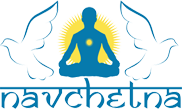What is an Addiction?
Addiction is a disease of brain, having a complex nature getting chronic if it remains for long time. One can see it working through the extreme craving and asking for the required addiction material like achohol or drugs, even in most adverse condition of life. Addiction is result of changes in the brain and its various circuits, which has risen from the condition of continous use of the addictive material like alcohol or drugs for long time. It also results from changes in the circuitry of brain responsible fort self control and different sort of behaviors.
Can Addiction be treated ?
Yes ! Addictions of all kinds are treatable. They are treated with medications, behaviroval treatments and in many cases the combination of both medication and behavirol treatment is used.
What is Relapse? When it can affect a person?
Relapse is a condition of a treated person re-involving in addiction. Relapse is a very obvious for a newly treated person for addiction, but it can also occurs after long abstention periods.
Is relapse a failure of addiction treatment?
Relapse is never to be taken as failure of treatment on patient. Infact it signifies that the newer approach with a different method of engagament in addition to the regular treatment is required. Relapse is nothing to be feared of. It is mearly a phase in the total treatment and cure of addiction.
Is there a way to know how quickly I can get addicted ?
Addiction can be quickly or slow depends on many factor. This may involve the your biological status ( your genetic code etc), the age, your surrounding and the interactions with them, your gender and many other factors. Sensitivity to addiction materials vary from individual to individual. A peroson may get addicted to a particular drug fast than compared to others. However, if you are having a family history of additive persons, then the chances may increase.
How to know that someone is under influence of addiction?
A regular user of alcohol/ drugs who is not concerned about the negetive consequences of life like family problems, loss in employment, debts, phyical injuries due to alchohol/ drug abuse, is surely a person is likely to be an addict.
Addicts think that they can get free of addiction is that true?
Addicts often think that they can put a break on their alcohol/ drug abuse any time, but mostly they cannot. In fact they surely need professional consultations for confirming their addictive status and then avail addiction treatment. Family support, friends support and other support is often needed for an addict to get over the addiction state.
If a pregnant woman abuses drugs or alcohol, does it affect the fetus?
Yes it affects a lot. Many substances including alcohol, nicotine, and other drugs of abuse can have negative effects on the developing fetus, because they are transferred to the fetus across the placenta. For example, nicotine has been connected with premature birth and low birth weight, as has the use of cocaine. Heroin exposure results in dependence in the newborn, requiring treatment for withdrawal symptoms. It is often difficult to tease apart the confluence of factors that go with drug abuse during pregnancy—poor nutrition, inadequate prenatal care, stress, and psychiatric co-morbidities—all of which may impact fetal development.
Are there any effective treatments for addiction?
Addiction can be effectively treated with behavioral therapies and, for addiction to some drugs such as heroin, nicotine, or alcohol, medications are another choices. Treatments vary for each person, depending on the type of drug(s) being used. Multiple courses of treatment may be needed to achieve success.
What is detoxification, or "detox"?
Detoxification is the process of allowing the body to rid itself of an addicitive material like drug/alcohol while managing the symptoms of withdrawal. It is often the first step in a drug treatment program and should be followed by treatment with a behavioral-based therapy and/or a medication, if available. Detox alone with no follow-up is not treatment.
What is withdrawal? How long does it last?
Withdrawal can be described as the various symptoms that occur after long-term use of a drug is reduced or stopped abruptly. Length of withdrawal and symptoms vary with the type of drug. For example, physical symptoms of heroin withdrawal may include restlessness, muscle and bone pain, insomnia, diarrhea, vomiting, and cold flashes. These physical symptoms may last for several days, but the general depression, or dysphoria (opposite of euphoria), that often accompanies heroin withdrawal may last for weeks. In many cases, withdrawal can be easily treated with medications to ease the symptoms, but treating withdrawal is not the same as treating addiction.
How can I enquire more or get more information on addiction treatment?
You can fill the online form to get more details on every matter related to the addiction treatment.

